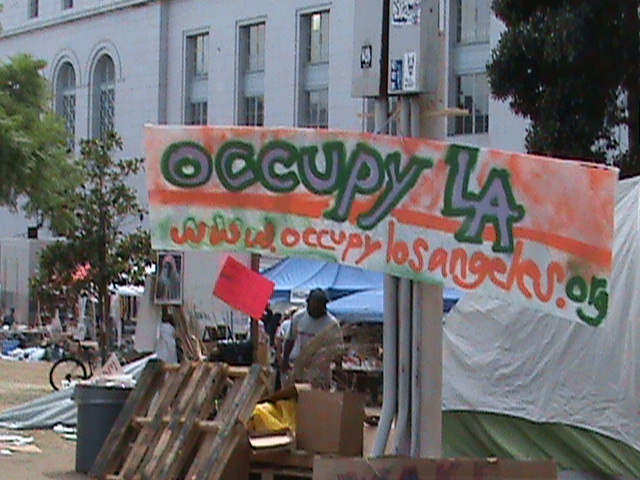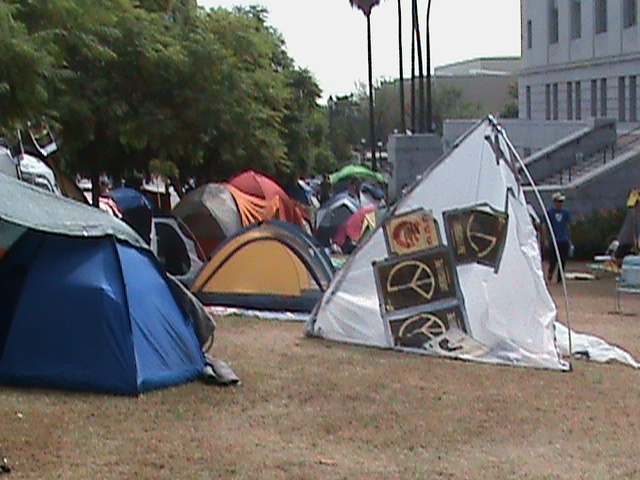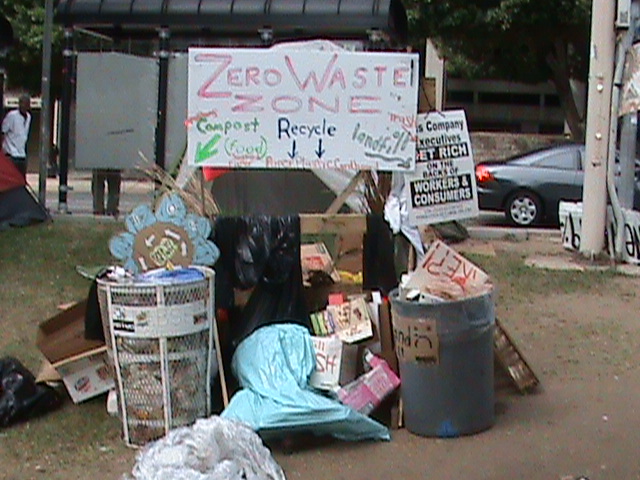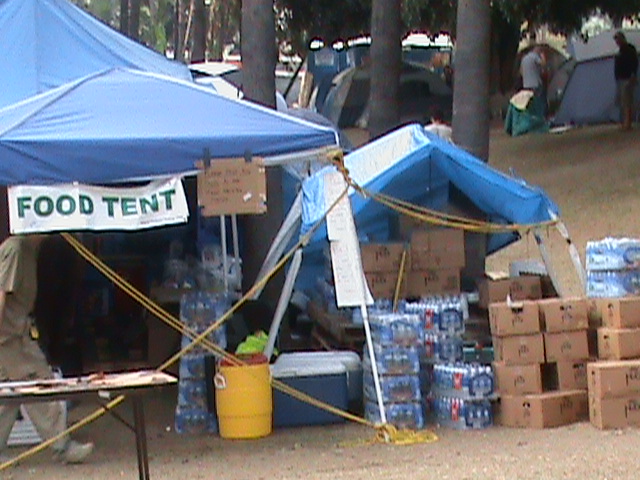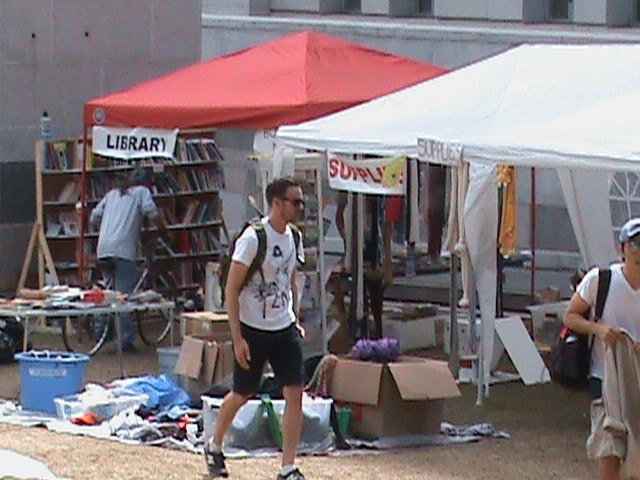
What do I feel, I just can't explain,
Hurt and anger both feel the same,
Tears come down, but I don't know for who,
Am I crying for me, or am I crying for you?
Why, oh why, did you leave me that way,
Why, oh why, aren't you here to say,
"I hurt, I pain, I moan, I cry, I think I may want to die,"
Help me today, help me to stay -- Alive
In The Courtroom
Week three was a very short trial week -- only three days. Monday was the Columbus Day holiday and Friday, the court was in recess because the witness on the stand, Dr. Steven Shafer, had a scheduling conflict. Nevertheless, the prosecution made powerful use of the compacted schedule. With the testimony of the coroner, and two doctors offering expert testimony, the prosecution tightened the grip on their theory that Dr. Conrad Murray criminally breached medical standards and "repeatedly acted with gross negligence" by giving Michael Jackson a fatal dose of the surgical anesthetic propofol for insomnia, causing "acute propofol intoxication."
The prosecution also played the remaining audio of the recorded statement that Dr. Murray gave to the police two days after Michael Jackson's death. Unlike Friday of the preceding week when Mrs. Katherine Jackson was away with her grandchildren at Michael Jackson tribute concerts, on Tuesday, Mrs. Jackson was sitting in her reserved seat in row number two.
It would have been an exercise in futility for anyone to try and prepare Mrs. Jackson for the pain she was going to endure as the scab of grief, longing and tragedy was ripped from her healing heart. As Mrs. Jackson listened to Conrad Murray's emotionless voice detail her anguish upon learning that her son was dead, she cried openly in court. Her daughter Rebbie, wrapped her arm around her and consoled her. Dr. Murray relayed how mother Jackson was alone at the hospital when the doctors began to tell her of Michael's demise. The transcript notes, "...she said, 'Well, how is he? He's not dead, is he?' And the doctor said, 'Yes.' And she broke down... " Dr. Murray told the police that Mrs. Jackson was sobbing and weeping. As a mother, was she thinking: "Mothers are not supposed to bury their children;" or "did my son die alone?" was she lamenting over "I could'a" or "I should'a;" or was she just numb, and yet the tears from her broken heart found the escape through her eyes. The jurors couldn't help but see the anguish Mrs. Jackson was feeling as she was reliving the moment that she learned that her shy, brilliant, misunderstood, compassionate, lonely, talented, genius, seventh child died.
The prosecution called four doctors to the stand in week three: Dr. Christopher Rogers, the coroner, Dr. Alon Steinberg, a cardiologist, Dr. Nadar Kamangar, a sleep expert and Dr. Steven Shafer, an expert on Propofol. The prosecution gave the family notice that the testimony of the coroner would be necessarily graphic and include disturbing photos. The family maintained their composure and stayed seated in row number two. The prosecution projected a picture of Michael's frail, naked dead body on a gurney. Ironically, Mrs. Jackson opted not to see Michael's body on June 25, 2009, when Michael's children and his siblings said their private goodbyes, but on Oct 10, 2011, she would now view her son in his most vulnerable state with the rest of the world. Most of the family chose to look away, but one of Michael Jackson's fan could not contain her emotions and ran out of the courtroom yelling and crying.
Dr. Steinberg, the cardiologist, testified that Dr. Murray should be found guilty even if jurors accept the defense's theory that Michael self-administered the fatal dose of propofol because the doctor was grossly negligent in leaving propofol and lorazepam near his patient when he left the room. Dr. Steinberg used every opportunity to repeat his opinion that Dr. Murray's actions fell far below the standard of reasonable care. Next up was Dr. Kamangar. He agreed that Michael suffered from insomnia which might have resulted in Michael's use of Demorol. However, Demerol was not found in Michael blood or urine during the autopsy. Dr. Kamangar testified that the combination of drugs Dr. Murray gave Michael "was the perfect storm" that killed him. He said, "Mr. Jackson was receiving very inappropriate therapy, in the home setting, receiving very potent sedatives, including propofol, lorazepam and midazolam, without monitoring by Murray, and ultimately this cocktail was a recipe for disaster."
Outside The Courtroom
The scene outside of the courtroom during week three hasn't changed much from week one, or week two. The people who were once strangers when they started sitting outside of the courtroom on the 9th floor, watching the trial via their Smartphones or iPads, are now friends who make lunch plans as soon as they meet at 8:45 a.m. They talk about their wait in the lottery pool and who were the lucky ones for the day. They cheer at witness' testimony that supports their contention that Dr. Murray acted recklessly. They discuss the prior evenings television coverage of the trail, and they still stand, in silence, whenever the Jackson family enters and exit the courtroom. The Jackson family clearly recognizes the devout Michael Jackson fans who line the 9th floor hall for the past three weeks and they acknowledge their support with subtle smiles, despite their understandable and apparent sadness.
On The Streets
The supporters continue to arrive daily for Michael and Dr. Murray. However, there is a small influx of people who come just for the opportunity to be seen on television. This group continues to grow daily. There were even a few people present on Friday, when Michael Jackson trial was not in session -- I guess they did not follow the news. I went to the courthouse to see the contrast of activity on the days the trial was in sessions versus days when it was not. The contrast was vast. There was one camera, owned by Headline News, where there would typically be twenty cameras representing national and local media. Across the street from the courthouse where one would usually see production lights and very large monitoring equipment, there were only electrical cords affixed to the wire fence. The yellow plastic divider, behind which supporters would stand was gone, and so to where the supporters and their signs. There were no police on patrol keeping the sidewalk clear for pedestrians. The courthouse was back to normal, but it felt very strange.
I decided to walk around to the side of the courthouse, and at the corner, I ran into "Occupy LA" at City Hall. Occupy LA is an offshoot of New York City's "Occupy Wall Street:. The expanding, national sleep-in protests are a peaceful and dramatic means to illustrate many citizen's frustrations surrounding the collapse of the financial market and the resulting unemployment. As I walked into the community of camping tents that took over the City Hall lawn on October 1, 2011, I was immediately met with a pungent odor emanating from trash that was mounting in the "recycle zone".
There were Occupy LA residents milling throughout the community without a real plan of what to do next. The tents were lined up along the front and side of City Hall. They were different colors, shapes and sizes. Some tents were even set up for special purposes, like mediation. The Occupy LA has a food tent, a supply tent, a library and an information table.
Occupy L.A. residents call City Hall lawn their home. It is a daunting community to walk through during the day; I cant imagine making the passage through at night. It's a odd brew of activists with PhDs and other degrees co-existing with the disgruntled unemployed and L.A.'s downtown homeless, in a community in which residents call "calm and safe". I spoke with Michael Rivers, a 29-year-old African-American man, who is a trained electrician. Michael was sitting in a folding chair with four other men. He does not sleep at City Hall, but comes daily because neither he, nor his more experienced electricians, can find work. Michael insists that the local government is giving away construction contracts to out-of-state companies instead of employing LA residents. Michael, like others that I spoke with, couldn't give me a clear mission statement for Occupy L.A. He said, "we all have different problems but its all about no money and no jobs."
I then spoke to Rebba Hale, from Portland, who was sitting at the information table. She has a college degree but has been unemployed for almost a year. Rebba has been living at City Hall since October 1, when the group took over the lawn. I asked if she was one of the organizers or leaders. She informed me that Occupy L.A. is a "leader-less" organization. Once again, she was unable to crystallize the mission of the group. This began to concern me, yet, I didn't hear any complaints. Rebba believes that the federal government needs "systematic change". She said, "We don't need multi-billionaires, when people don't have jobs or food." Rebba says that Occupy L.A. is illegally housed on the City Hall grounds but no one has forced them to leave. In fact, Los Angeles City Counsel signed a resolution in support of the Occupy L.A. movement. The resolution has no tangible benefit to Occupy L.A., but it's a moral victory nonetheless.
The living conditions in Occupy L.A. are unsanitary. There is no electricity, no running water and no toilets. The residents are cooking Ramen noodles on makeshift stoves. Rebba showers around the comer at the women's mission, but it is evident that many people have not showered in a very long time. It seems that everyone pitches in with different tasks like moving the garbage and sweeping the sidewalk. Rebba insists that outside of a resident almost dying from alcohol withdraw, there have been very few disturbing incidences. I asked Rebba how long she planned to occupy L.A. She replied, "I'm not leaving. I'm here for the long haul. I hope that it wont take more than three to five years". Wow! I hope that a resolve can come sooner versus later. Its only a matter of time before this "calm and safe" community turns into something tragic.
